I would never have believed it could happen.
It was a scene out of one of those perfect-world daydreams. A gentleman walked down the center aisle to ask if anyone were too warm because he would open the windows, a curious thing since the audience consisted of homeless people, not a theatre crowd. The officials of the Court sauntered in, milled around, smiling and relaxed as though they had all just stepped out of a hot bath after hitting the gym.
The two prosecutors were the only exceptions to the otherwise distinctly pleasant atmosphere --- business-like, lonely in their front corner of the room, and glued to the screens of their laptops --- whom, the Public Defender, Steve Binder, asked us all to thank on our way out for their kindness and cooperation. After all, with few if any exceptions, the cases before the judge were dismissed right and left; and that was the happiest judge I have ever seen. Steve believes that judges become judges to have a positive impact on society, and he has no difficulty recruiting them for Homeless Court. One judge is reported to have exclaimed, “This is the most fun I’ve had as a judge!"
It was a great day of victories over the very unimportant intrusions and slights that thrust themselves upon the lives of the homeless.
It was a great day of victories over the very unimportant intrusions and slights that thrust themselves upon the lives of the homeless.
(Well, of course, I thanked the prosecutors, but neither acknowledged me, a clear invitation which I could not pass up: I thrust my hand out and kept it there. One of them, still looking at her computer screen, finally bothered to shake it since it must have seemed my hand would not go away otherwise. I left the Court amid a profusion of approving smiles, nods, and thumbs-up.)
I interviewed Mr. Binder some time after my Homeless Court date. He told me he liked to hang around the courthouse when he was growing up. He was fascinated by the attorneys, but became deeply impressed with the people who needed them. He observed these men and women, noting their appearance and expressions as they entered and exited the courtroom. It became clear that a day in court could make or break a person, or an entire family. Steve knew he would become a lawyer.
As a San Diego Public Defender, Mr. Binder was one of those who answered the call for legal professionals to participate in the first Stand Down in 1988, a grassroots, community-based event to which volunteers donate their time and expertise to caring for homeless Vietnam veterans. When those participating veterans were interviewed, it was found that the greatest need among them was help with outstanding bench warrants.
A bench warrant is issued by a judge for contempt of court, such as the failure to appear or the failure to pay, which often presents difficulties for the homeless, the underlying assumption being that one has money and means, which are not the usual situation for homeless persons. I have mentioned in other posts how the way back up and into society can be stymied by the status of homelessness itself and how something simple, like an unpaid citation, can exponentially explode over time into more fines, confiscation of one's vehicle, and even arrest. A bench warrant gives law enforcement the authority to arrest and take the subject to jail.
Homelessness can become a fugitive lifestyle.
Moreover, because the homeless are not a protected class, what happens after arrest and jail is anyone's guess. No one has been able to tell me how long a homeless person is incarcerated and where he goes after his release. Presumably, they are back living on the street again, facing the same challenges. However, my friend, Robin, of whom I spoke in previous posts, knew of many incidences of homeless who were "disappeared," that is, never seen again. The isolation of the homeless, their lack of strong family and community ties, may make them prey to criminal elements who operate with impunity for that very reason: no one knows, cares about, or misses the homeless, so they are fair game.
Mr. Binder's innovation was to extend and expand the legal services offered to homeless veterans at Stand Down to all homeless people, making the court system accessible, collaborative, and user-friendly. The Homeless Court Program, begun in 1989, consists of volunteer legal professionals in cooperation with various community-based services that can support the homeless individual's rehabilitation. The Municipal Court judge essentially erases the individual's record by imposing an alternative sentence, such as participation in a recovery program, attending computer classes, and so on. The location of the court, too, is far less imposing, being held in the community, usually in a homeless shelter.
It was a fateful day when I happened to phone the San Diego Municipal Court's Traffic Division and talk to a young clerk there whom I questioned about my options in regard to the most recent, very-pricey citation I had to pay or manage to clear. I summoned the nerve to say I was homeless and that there should be some different standard applied in such a case. She said quite casually, "Well, there's Homeless Court."
"Homeless Court?"
"Yes."
"OK. Where is Homeless Court?"
"Oh, you can't just go there. You have to call the Public Defender's office. You want to talk to Steve Binder."
I was on to the next phone call in an instant and left a message. I left a message the next day and the day after that. I even left a few bold snippy messages. It was a full two weeks before my call was answered.
In the meantime, I thought I would try going into Traffic Court before the set date in the hope of learning from the judge what I could do to lessen the financial burden of the ticket and if the judge could refer me to this thing called Homeless Court. Clearly, I was impatient for an answer, or I would not have tried sitting in the court room.
Picture it: the judge enters wearing the black robes of the legal priesthood, and she sits an entire story above the sinners seated in purgatory. One poor sinner after another comes up to the bench as his name is called and faces the judge. Everyone can hear what the judge and the defendant are saying. No matter what the outcomes, I am embarrassed at hearing about someone else's problems with the law.
After a half-hour of this, I start to cry and cannot stop. The idea of standing before the judge and begging for mercy because I am homeless in front of a hundred other people is mortifying. One of the court officials passes me a box of tissues, but it does nothing to alleviate the fear. All the same, I needed help; so I stand up and approach the bench when I hear my name. I am still crying and can barely remember what it was I intended to ask. The judge completely misreads my intentions and merely postpones my court date. What a relief it was to get a call back from the Public Defender.
The truth is no one benefits by homelessness, which should be treated as an affliction in a healthy society. The legal system suffers from a back log of minor cases and the opprobrium of being dehumanizing and punitive, and the community suffers from having a part of its population inactive and unable to contribute. No one can be happy seeing the homeless at every major intersection in every city of the United States begging for anything we can spare.
Fortunately, Homeless Courts are spreading all over the United States. The Homeless Court Program is transforming the lives of the homeless, as well as transforming the legal system through its working relationships to agencies and services in the community. The community at large is healthier and freer.
Steve Binder, as it turns out, is widely-known and respected and was elected to the Ashoka Fellowship in 2005. Ashoka International recognizes and supports social entrepreneurs across the globe. Ashoka Fellows undergo a stringent selection process based on four criteria: the candidate possesses, first, a new solution to a social problem; secondly, creativity; third, leadership; and, lastly, ethical fiber. The final criterion is weighted more heavily than the others. If there is any doubt about the last quality, the candidate will not pass. So the last question asked in regard to any candidate to the Ashoka Fellowship is "Do you trust this person absolutely?"
I knew nothing of Mr. Binder's reputation when we first met by telephone and in the brief time he acted on my behalf as Public Defender. My own answer to the question above, unequivocally, was and still is "Yes!"
Homelessness can become a fugitive lifestyle.
Moreover, because the homeless are not a protected class, what happens after arrest and jail is anyone's guess. No one has been able to tell me how long a homeless person is incarcerated and where he goes after his release. Presumably, they are back living on the street again, facing the same challenges. However, my friend, Robin, of whom I spoke in previous posts, knew of many incidences of homeless who were "disappeared," that is, never seen again. The isolation of the homeless, their lack of strong family and community ties, may make them prey to criminal elements who operate with impunity for that very reason: no one knows, cares about, or misses the homeless, so they are fair game.
Mr. Binder's innovation was to extend and expand the legal services offered to homeless veterans at Stand Down to all homeless people, making the court system accessible, collaborative, and user-friendly. The Homeless Court Program, begun in 1989, consists of volunteer legal professionals in cooperation with various community-based services that can support the homeless individual's rehabilitation. The Municipal Court judge essentially erases the individual's record by imposing an alternative sentence, such as participation in a recovery program, attending computer classes, and so on. The location of the court, too, is far less imposing, being held in the community, usually in a homeless shelter.
It was a fateful day when I happened to phone the San Diego Municipal Court's Traffic Division and talk to a young clerk there whom I questioned about my options in regard to the most recent, very-pricey citation I had to pay or manage to clear. I summoned the nerve to say I was homeless and that there should be some different standard applied in such a case. She said quite casually, "Well, there's Homeless Court."
"Homeless Court?"
"Yes."
"OK. Where is Homeless Court?"
"Oh, you can't just go there. You have to call the Public Defender's office. You want to talk to Steve Binder."
I was on to the next phone call in an instant and left a message. I left a message the next day and the day after that. I even left a few bold snippy messages. It was a full two weeks before my call was answered.
In the meantime, I thought I would try going into Traffic Court before the set date in the hope of learning from the judge what I could do to lessen the financial burden of the ticket and if the judge could refer me to this thing called Homeless Court. Clearly, I was impatient for an answer, or I would not have tried sitting in the court room.
Picture it: the judge enters wearing the black robes of the legal priesthood, and she sits an entire story above the sinners seated in purgatory. One poor sinner after another comes up to the bench as his name is called and faces the judge. Everyone can hear what the judge and the defendant are saying. No matter what the outcomes, I am embarrassed at hearing about someone else's problems with the law.
After a half-hour of this, I start to cry and cannot stop. The idea of standing before the judge and begging for mercy because I am homeless in front of a hundred other people is mortifying. One of the court officials passes me a box of tissues, but it does nothing to alleviate the fear. All the same, I needed help; so I stand up and approach the bench when I hear my name. I am still crying and can barely remember what it was I intended to ask. The judge completely misreads my intentions and merely postpones my court date. What a relief it was to get a call back from the Public Defender.
The truth is no one benefits by homelessness, which should be treated as an affliction in a healthy society. The legal system suffers from a back log of minor cases and the opprobrium of being dehumanizing and punitive, and the community suffers from having a part of its population inactive and unable to contribute. No one can be happy seeing the homeless at every major intersection in every city of the United States begging for anything we can spare.
Fortunately, Homeless Courts are spreading all over the United States. The Homeless Court Program is transforming the lives of the homeless, as well as transforming the legal system through its working relationships to agencies and services in the community. The community at large is healthier and freer.
Steve Binder, as it turns out, is widely-known and respected and was elected to the Ashoka Fellowship in 2005. Ashoka International recognizes and supports social entrepreneurs across the globe. Ashoka Fellows undergo a stringent selection process based on four criteria: the candidate possesses, first, a new solution to a social problem; secondly, creativity; third, leadership; and, lastly, ethical fiber. The final criterion is weighted more heavily than the others. If there is any doubt about the last quality, the candidate will not pass. So the last question asked in regard to any candidate to the Ashoka Fellowship is "Do you trust this person absolutely?"
I knew nothing of Mr. Binder's reputation when we first met by telephone and in the brief time he acted on my behalf as Public Defender. My own answer to the question above, unequivocally, was and still is "Yes!"





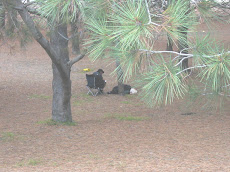


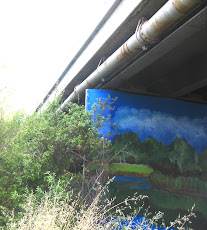
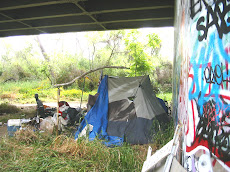







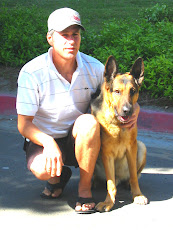
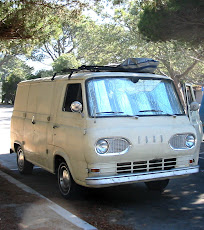
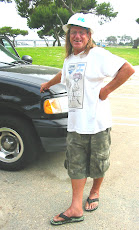









No comments:
Post a Comment